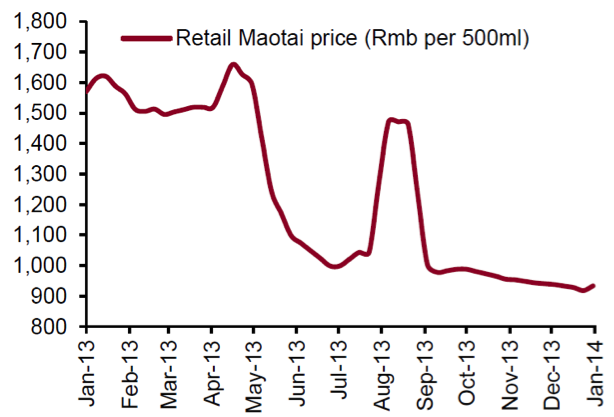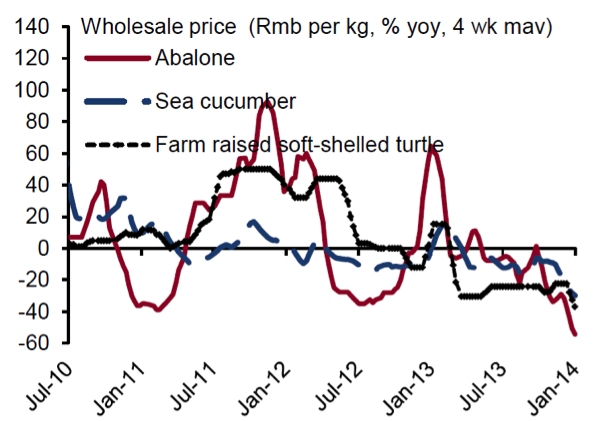Will China's anti-corruption campaign derail the economy?
President Xi Jinping’s hardline anti-graft campaign has claimed the scalp of one of its highest ranking officials: General Xu Caihou, who held one of the most senior ranks in the military. He was also a member of the inner sanctum of political power -- the politburo.
The arrest of General Xu, who has reportedly been under house arrest since March this year, signals the continuous escalation of Xi’s relentless drive to clean up the party’s endemic corruption. It was only a week ago that the party officially announced the investigation of Su Rong, who was a vice-chairman of China’s parliamentary advisory body and a former party-secretary of Jiangxi province.
The party has arrested 463 senior to mid-levels officials including dozens of ministers, generals and CEOs of state firms since December 2012, according to the website of the party’s anti-graft body. This does not include tens of thousands of more junior party cadres.
The arrests of General Xu and one of his protégées, Gu Junshan (a senior general in charge of the military’s logistics department) early this year highlights Xi’s determination to crack down on corruption in the most sensitive part of the party’s power structure, namely the armed forces. Mao Zedong, the founder of the party, famously said “political power grows out of the barrel of a gun”. Maintaining the support of military has always been central to keeping the party in power.
Though Xi’s anti-corruption campaign has been widely applauded in China, the voices of opposition are gaining momentum as well. Some are arguing that the hardline approach is damaging the credibility of the party as more and more explosive details of corruption and graft are exposed. Many are even using the economic argument that the anti-corruption campaign is dampening domestic demand at a time when the economy is under pressure.
It is quite telling that the retail price of Maotai, the favourite liquor of Chinese officials, has dipped below 1,000 yuan from 1,600 yuan a year ago. The wholesale price of expensive seafood like abalone, sea cucumber and farm-raised soft shell turtle have all declined considerably, according to AMP Capital.


Patrick Ho, head of Asia Equities, told Australian investors: “One of the core problems post the three decades of growth in China comes from government corruption. The new leadership has shown ever-stronger effort to curb down the situation in China. The anti-corruption campaign has been more serious and has lasted longer than expected.”
“Many SOE executives and local government officials will be affected. This is positive for China in the long run, though may affect consumption and investment in the short run,” he said.
The impact on the high-end residential sector is also visible with many officials offloading their ill-gotten properties. Mao Daqing, the deputy chief executive of Vanke, the largest property developer in China, told a closed forum in Beijing last month that he had to receive at least 14 inspection groups from the prosecutor’s office and the central disciplinary commission of the Chinese Communist Party.
“For us developers, the impact of the anti-corruption campaign on the sales of high-end property is very serious. It does not only mean fewer corrupt officials are buying high-end apartments but also directly and indirectly related people and industries,” he said (What keeps China’s biggest property developer up at night, May 7).
Yes, anti-corruption is dampening the 'irrational exuberance' in some sectors, but it is addressing one of the most fundamental challenges for the Chinese economy. The logic is simple but worth repeating. Corruption and the associated problem of nepotism are not only undermining the political legitimacy of the party; they are also destroying business confidence.
Nobel laureates George Akerlof and Robert Shiller have shown in their ground-breaking book Animal Spirits how the last three great recessions (1990-91, 2001 and 2007) are connected with predatory and bad business behaviours.
“These examples illustrate that the business cycle is connected to fluctuations in personal commitment to principles of good behaviour and to fluctuations in predatory activity, which in turn is related to changes in opportunities for such activity,” they wrote.
Widespread corruption is leading to shoddy construction standards. Many of China’s ultra-rich business people are snapping up foreign passports and relocating assets abroad as insurance policies and it’s needless to say inefficiencies are being bred throughout the system.
The anti-corruption campaign is not only the party’s last chance to stay in the power, it’s also vital for China’s economic reform. Fighting corruption is not only a political necessity but also an economic imperative.
















